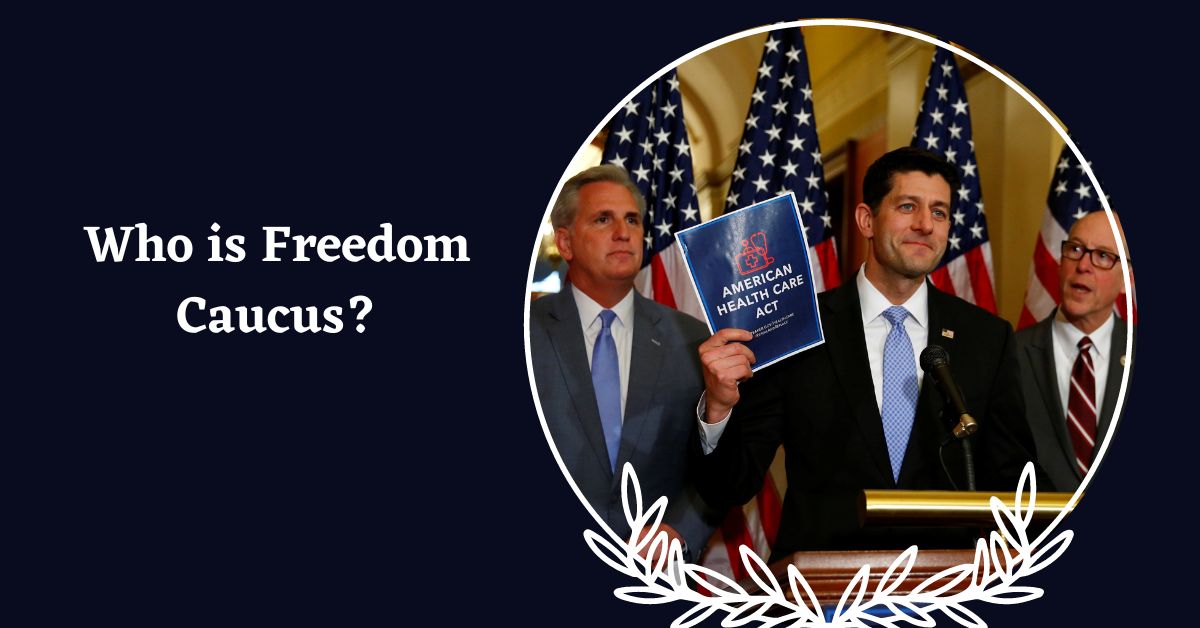Do you know who is Freedom Caucus? Conservative Republicans in the United States House of Representatives from the Freedom Caucus, sometimes known as the House Freedom Caucus. In the House Republican Conference, they are seen as the most conservative and extreme members of the party. Several members of the conservative Tea Party movement got together in January 2015 to form the caucus and try to drive the Republican leadership further to the right. A “smaller, more cohesive, more nimble and more aggressive” group of conservative legislators was how its first chairman, Jim Jordan, characterized the caucus.
Who is Freedom Caucus?
In the House Republican Conference, they are seen as the most conservative and extreme members of the party. To pull the Republican leadership farther to the right a group of conservatives and Tea Party members founded the caucus in January 2015.
History
This group first met at the Republican congressional retreat in Hershey, Pennsylvania, in the middle of January 2015. “That was the first time we got together and agreed we were a group and not just a bunch of pissed-off people,” said founding member Mick Mulvaney. Separate from the Republican Study Committee and the House Republican Conference, nine conservative Republicans in the House have begun organizing a new legislative caucus. Scott Garrett of New Jersey, Jim Jordan of Ohio, John Fleming of Louisiana, Matt Salmon of Arizona, Justin Amash of Michigan, Ral Labrador of Idaho, Mulvaney of South Carolina, Ron DeSantis of Florida, and Mark Meadows of North Carolina were the founding members who made up the first board of directors for the new caucus.
We had twenty names, and they were all bad,” Mick Mulvaney said to Ryan Lizza of the New Yorker. To be fair, we didn’t exactly love the Freedom Caucus either, but it was so unoriginal and detested by everyone that we couldn’t really argue against it. In his article, Lizza claims that one of the group’s working names was the Reasonable Nutjob Caucus.
Repeal of John Boehner as House Speaker
The newly established group announced that resistance to John Boehner as Speaker of the House and a readiness to vote against or derail legislation that the group opposed would be a condition for new members.
After Boehner’s resignation on September 25, 2015, there was a leadership fight to determine who would replace him, and the House Freedom Caucus played a role in both. Those in the caucus who opposed Boehner for speaker believed they had been treated unfairly after he allegedly sidelined them from the Republican Study Committee and prevented them from serving on important committees.
Boehner found it difficult to manage House Republicans due to the conservative members of the Republican Party in the House’s fierce opposition, and he sparred with those House Republicans in 2013 over their willingness to shut down the government in pursuit of goals such as repealing the Affordable Care Act. These Republicans went on to form and join the Freedom Caucus after it was established in 2015.
As of the Trump Administration’s Start
When asked about Trump’s platform after his victory, Mulvaney replied, “Trump wants to turn Washington upside down. That was his initial message and his winning message.” We both seek the same end result. We are Donald Trump’s closest allies in the House because we are willing to work with him to persuade Republican lawmakers to bring about change in Washington. According to Freedom Caucus vice chair Jim Jordan, the group’s priorities switched from legislation to protecting the President throughout the Trump administration.
Leadership Elections for the Republican-controlled House are scheduled for the year 2022
When the new Congress convenes in January 2023, Republicans will have won back the House by a razor-thin margin in the November 2022 elections. There were debates within the Freedom Caucus over whether to oppose House Minority Leader Kevin McCarthy’s quest for Speaker of the House in the upcoming Republican leadership elections. The House Republican caucus presented a list of demands before to the party’s internal election that would significantly alter House procedure by reducing the speaker’s authority and increasing that of the caucus and individual House Republicans.
Among these was formalizing the Hastert rule (also known as the “majority-of-the-majority” rule), which would block all legislation except those supported by a majority of House Republicans, making it easier to oust a speaker by reviving the motion to vacate the chair, and reducing the speaker’s control over legislation by allowing 10% of the Republican conference to force a vote on any amendment.
Keep following venturejolt.com for more updates. Don’t forget to bookmark our site for the latest updates related to politics and more.
